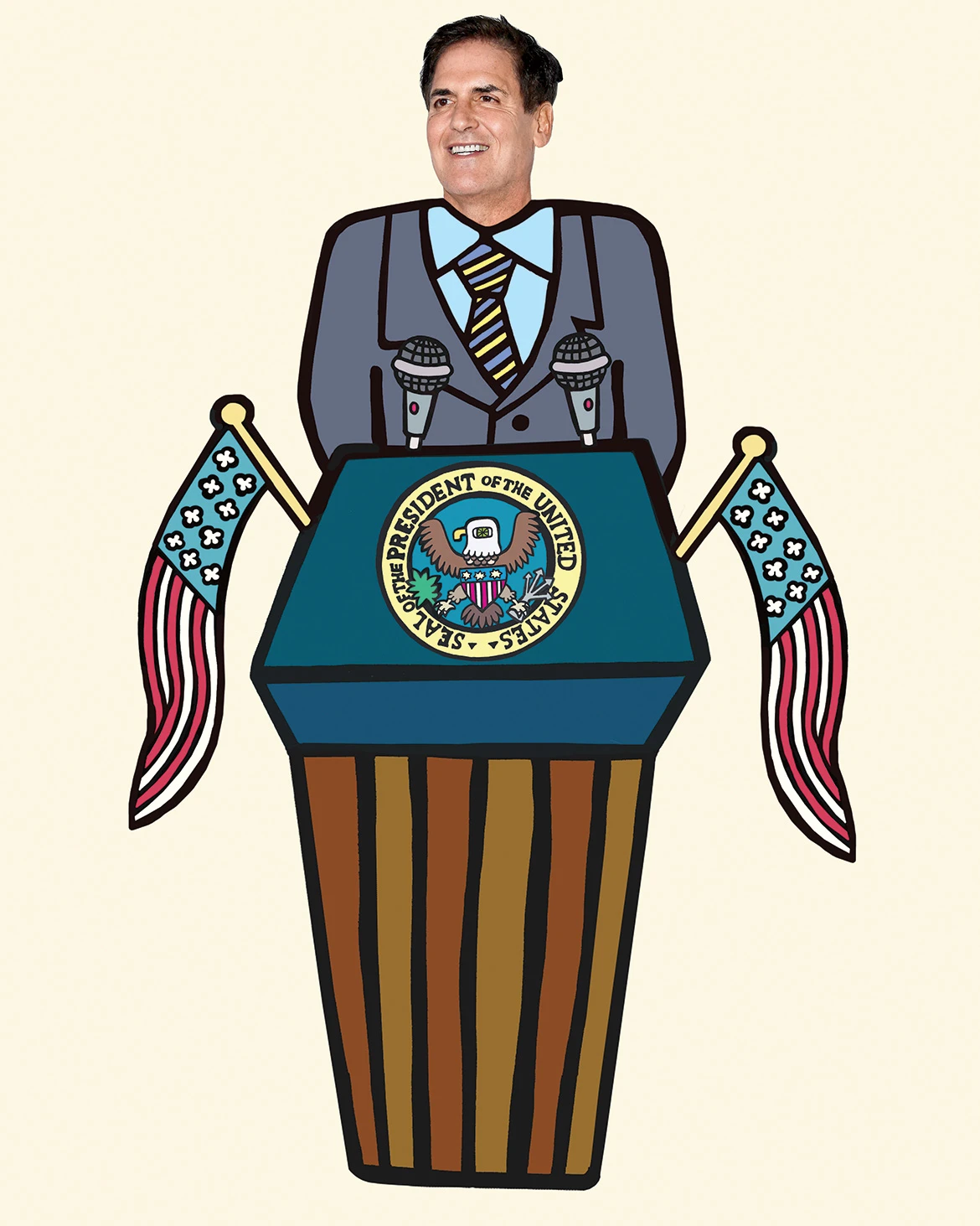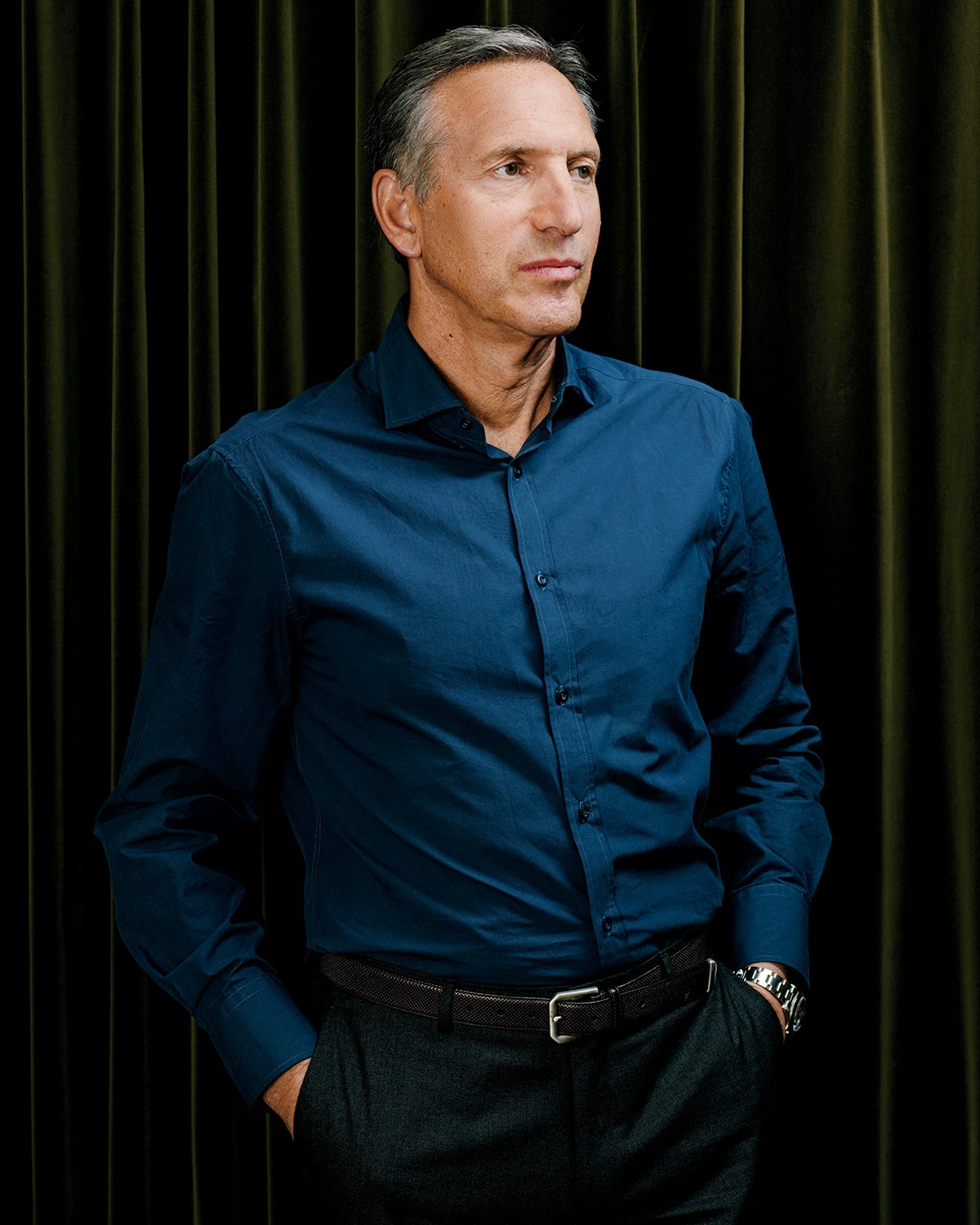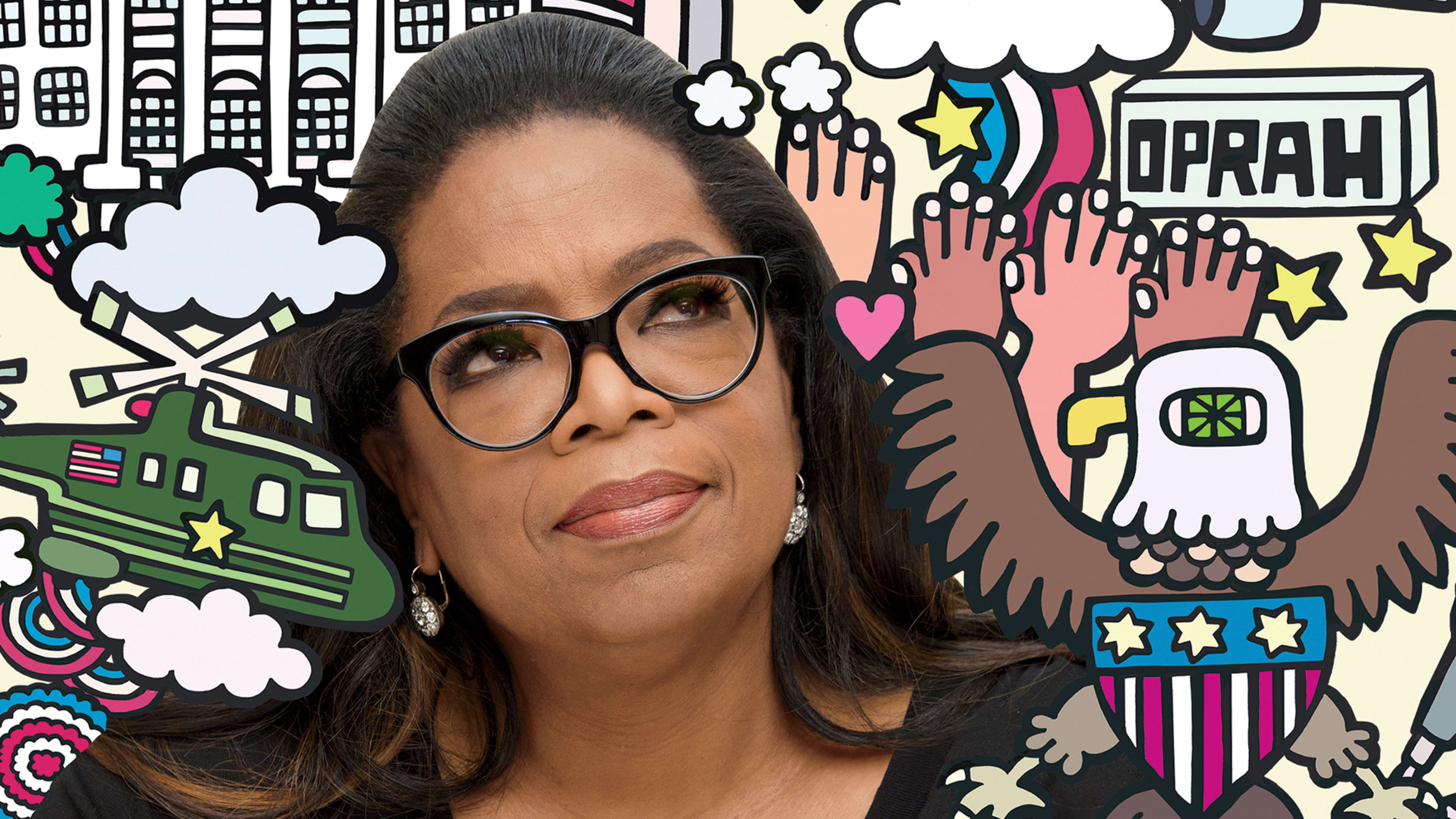On a recent afternoon in Washington, D.C., at a Starbucks just a few blocks from the White House, a pair of baristas are explaining why their boss Howard Schultz should run for president. Schultz, the executive chairman of the world’s largest coffee-shop chain, had reportedly considered bids for the Oval Office in previous elections, but since he announced in December that he would be stepping down as CEO, speculation has built about his plans for 2020.
Employees at this particular store seem eager for “Howard,” as they call him, to get in the race. “He’s a great guy and a great CEO,” says one of the workers, pointing to Starbucks’s unusually generous benefits and Schultz’s progressive activism on a range of current issues, which include advocating for LGBTQ rights and providing job opportunities to both military veterans and refugees. “I would consider voting for him.”
For many Washington pundits and insiders, the idea of a Schultz candidacy is hard to resist. The billionaire Brooklyn native seems to have the means, the private-sector bona fides, the platform and reach, and the strong personal brand to potentially mount a serious challenge to President Trump.
But Schultz is hardly the only executive who is generating excitement in the political world. Ever since Trump’s November victory—which was significantly aided by his image as a businessman—election watchers are looking toward a range of corporate luminaries as potential presidential candidates. Disney CEO Bob Iger is reportedly thinking about a run, as is Dallas Mavericks owner (and Shark Tank reality-TV star) Mark Cuban. Facebook CEO Mark Zuckerberg is a rumored potential contender (although he has denied it, as has COO Sheryl Sandberg). Even Oprah Winfrey hinted that she might be interested.
“After Trump’s success, it’s no surprise that nonpoliticians from the worlds of business and entertainment are asking themselves, Why not me?” says Brian Fallon, who served as the press secretary for Hillary Clinton’s most recent presidential campaign. “Today, businesspeople are seen almost automatically as effective messengers on the economy, as job creators. That gives them an inherent advantage.”
Things were very different when Henry Ford ran for a Senate seat in Michigan a century ago. With his industry-building experience and virtually unlimited finances, the automobile magnate was initially thought to be a shoo-in for the seat. He ended up losing, however, in “a defeat that sent shivers through other businesspeople thinking of running for office themselves,” according to presidential historian Douglas Brinkley. “Generations of the richest people learned there’s a populist rebellion that occurs when voters feel there’s someone rich buying [an election].”

Since then, America’s perception of wealth, and of CEOs, has changed significantly, easing the way for business-world aspirants such as EDS founder Ross Perot, onetime Godfather’s Pizza leader Herman Cain, and former HP CEO Carly Fiorina, most of whom never got much traction with their presidential efforts. (Mitt Romney, who won the Republican nomination in 2012, emphasized his tenure as governor of Massachusetts more than his experience as cofounder of Bain Capital.) While career politicians—with their easily criticized voting records—are associated with Washington gridlock and entrenched bureaucracy, business success is synonymous with a certain kind of savvy and smarts. “We’re in an era when CEOs are the leaders of America,” Brinkley says. “More people are going to be interested in the story of Bill Gates or Steve Jobs than some senator.”
Trump convinced voters that an outsider from the corporate world would be well-suited to take on big government, but certainly his enormous brand recognition and television celebrity also contributed greatly to his appeal as a candidate. Did people vote for him because he was actually a successful CEO, or because he played one on TV? “There’s no question that Trump entered this race with a great advantage for having done The Apprentice,” says Stuart Stevens, who ran Romney’s 2012 campaign. “The idea that you have to have held elected office before to run for president is now clearly false.”
If Trump benefited so greatly from his hit reality-TV show, just think about the boost Oprah would likely get given her decades of ratings success with The Oprah Winfrey Show and her extraordinarily passionate fan base. Or imagine the halo effect Schultz and Iger might enjoy with their leadership being so closely tied to such beloved brands as Starbucks and Disney. “Most people don’t experience a Trump hotel, while people all over the country experience Starbucks every day,” says Democratic strategist Joe Trippi, who oversaw Howard Dean’s unsuccessful presidential campaign back in 2004.
Business leaders can also tap into certain advantages that just aren’t available to most traditional politicians. “They have the resources to run,” says Trippi, “unlike the Bernie Sanderses of the world, who can only get the resources by attracting a big following.” Mark Cuban is a highly engaged social media star with more than 6.5 million Twitter followers. Oprah publishes her own magazine and has countless famous (and wealthy) friends and admirers. And if even a fraction of Starbucks’s 170,000 U.S. employees get excited about the idea of a Schultz campaign, that would start him off with a groundswell of campaign volunteers.
But simply having a megaphone isn’t going to be enough. “Regardless of whether you own a platform like, say, a chain of retail locations or a social media network, you need that fluency in identifying and reaching the audience you’re seeking,” says Fallon. “The type of innovation happening in marketing in C-suites is probably what needs to be imported to political communication.”
With no obvious front-runner for the 2020 Democratic ticket, it seems quite likely that other unexpected candidates, each with their own unique brand and platform, will be floated for office in the years ahead. While reporting this story, I heard various politicos suggest possibilities ranging from billionaire hedge-fund manager turned environmental activist Tom Steyer to the actor George Clooney. “There’s a talent hunt on right now to fill the void,” says Brinkley. “Democrats are looking at their senators and governors and saying, ‘Yikes, they don’t have the right stuff. But what about one of these CEOs or celebrities?’ ”

But is any of this really a good idea? Do the skills required to run large companies actually translate to government? Former President Barack Obama has said that he thinks business acumen is more helpful for building campaigns than for occupying the White House. And there’s no reason to think that traditional top-down, corporate-hierarchy thinking is particularly useful in an environment where large-scale change requires consensus-building and legislative know-how (just look at Trump’s early stumbles). When I ask Mark Cuban about this issue, he responds that exceptional business leaders know how to learn quickly and can adjust to whatever challenges are in front of them, whether in a public or private capacity. “Romney had no problem adapting to being governor,” he says. “Nor should any strong candidate have a problem adapting to the job of POTUS. Historically, a preponderance of candidates have been attorneys. I’ll take businesspeople any day.”
Voters are currently witnessing the disruptive impact of having an outsider CEO in the Oval Office, and it’s possible that their appetite for future corporate politicians will depend on what happens over the next few years. “For 2020, business leaders have to start thinking about how they’d run if Trump has so polluted the water for a no-government-experience candidate,” says Trippi. “If that’s no longer in vogue, how are you going to deal with that? Because you can’t just say, ‘He was a businessman who screwed up governing, but I won’t.’ ”
It’s also worth noting that these titans of industry wouldn’t initially be running against President Trump, but rather against one another. It’s hard to picture polished corporate pros like Schultz and Iger onstage at a series of televised primary-season debates trading verbal punches. Plus, in order to mount serious presidential campaigns, they would have to be willing to endure some enormous downsides, such as the viciousness of today’s political environment and the often-brutal media coverage. “There’s one amount of scrutiny you’re subjected to when you’re accountable to a board, shareholders, and the business press,” says Fallon. “It’s a whole other thing to subject yourself to the political press corps day in and day out—to have what you’re wearing [be judged], have to be ‘on’ every day, striking the exact right tone and appearance. It’s a different set of demands, and it takes a toll.”
There is also the real risk of doing damage to their reputations should they suffer an embarrassing public defeat, like Henry Ford once did. “If you’re going to run for president, you have to have such an unbelievable hunger for the job,” Brinkley says. “If you’re the head of Starbucks now, do you want to become this beat-up, battered political figure?”
That’s why it’s quite possible that none of these rumored candidates will actually decide to run when the time comes. If any of them are seriously thinking about it, they almost certainly wouldn’t say so this early in the process, but so far, they’ve generally been evasive—as have most traditional politicians whose names are in the mix for 2020.
Iger recently said that Disney is his full-time job, and that “I don’t think the notion of running for president is something anyone considers either on a part-time basis or in a frivolous way.” (He has reportedly informed friends that he’s toying with the idea.) Cuban tells me that he is not planning to get into the race “as of now.” And when I asked Schultz about his presidential aspirations back in 2015, he responded pretty decisively: “I have no desire to be in an elected position in government. I really do believe that I can do much more as a private citizen to effect change than if I was in Washington.”
Of course, that was before the extremely unlikely rise of a celebrity real estate personality, before Hillary Clinton’s stunning electoral loss, and before voters made clear just how hungry they are for genuine, serious change. “If more people realize the stakes, and that causes people [like Schultz] to rethink the idea that they can make more of a difference outside Washington, then that’s a good thing,” says Fallon. “If Trump’s presidency might have one silver lining, it’s that, yes, politics matters. Public service is extremely relevant, and you don’t need to be a career politician to succeed at it.”
Recognize your brand’s excellence by applying to this year’s Brands That Matter Awards before the early-rate deadline, May 3.
